Coronavirus broke the country, and the Government is failing to fix it
The COVID-19 pandemic was always going to be a crisis. Our failed institutions have made it worse.
When the news first started reporting on a new strain of coronavirus found in Wuhan, China, it seemed like the same old fearmongering that had been seen countless years before. As more and more news came out of the virus spreading quickly and the Chinese government taking aggressive steps to counter the spread, many Americans at home still saw it as an inherently foreign thing disconnected from the world at home, as it’d turn out they were wrong.
Every decade an event happens that changes the course of world history and sets the stage for the issues and political discourse that will shape that decade. In 2000, the event was the Iraq War; in 2010, the event was the Arab spring; and in 2020 it appears that the event will be the COVID-19 pandemic. There were warning signs sure, and as it turns out, many institutions within our own government had feared that a pandemic would be the next big problem that the world would face.
Despite the warnings, despite the affluence of this country, COVID-19 has broken our institutions in ways not seen by any other crisis in modern history.
One of the most obvious signs that this pandemic was more than it seemed was when the first few Americans began both getting sick and dying in coastal cities. While many Americans were used to a viral outbreak appearing every few years or so, none of them ever arrived in the US this quickly, let alone killed American citizens living within the country. At that point, it was clear that this wasn’t just a Chinese problem; the virus had begun to spread within our own country.
At the time, President Trump and members of right-wing media took a very hostile aim at the COVID-19 crisis. As more and more news outlets began to cover COVID-19, right-wing news outlets were quick to call the crisis nothing short of an overembellished political stunt by left-wing outlets to make the President look bad. The President made the point that the virus was just as dangerous as the common cold, despite having a far higher mortality rate, and right-wing pundits quickly joined him in blaming Democrats for causing mass hysteria.
To the President’s credit, this was a very effective stance to take since when compared to the governors who were quickly closing everything and pushing for self-quarantining measures. While the governors would later be vindicated for their early actions, the President was able to get much-needed popularity due to him being so nonchalant about the crisis.
The majority of the country at the time, and a significant portion of the country to this day, believed that this crisis was not worth the hassle that the media seemed to be giving it. While it’s easy to judge that side of the country, it is important to note the influence the media had on them and the fact that many of those people would be negatively affected by the country shutting down due to job loss.
While things looked good for Trump’s COVID-19 response, in the beginning, the situation began to get widely out of hand.
While things initially looked good for Trump’s COVID-19 response, the situation began to get widely out of hand, and the worse the situation seemed to get within the country, the more clear it seemed that Trump did not know what to do to handle the crisis. Once the economy started to crash and mass job loss followed, it was clear that this issue was more than just a Democrat talking point, and both Trump and the right-shifted to reflect that.
The Trump administration deserves the brunt of the blame for the delayed response to the COVID-19 pandemic, but the administration itself isn’t completely to blame for the fallout after the pandemic had spread within the country. As the economy started crashing faster than ever seen before and unemployment spiked faster than seen in the great recession, it became clear that Congress would have to step in and come up with a relief plan. This would end disastrously in one of the worst relief plans conceived by Congress possible.
The Democratic leaders in the Senate did a terrible job of negotiating a deal that would protect workers and actively give enough of a stimulus to keep people safe during the pandemic. While Republican leaders like Mitt Romney called for universal $2,000 checks for every American, Democrats lagged behind with offers ranging from $500-$1,200 checks that would be primary means-tested.
The Democrats’ obsession with the means-tested stimulus was one of the main reasons why the CARES Act was so ineffective as a response bill. While means-testing would not be on the final version of the bill, the fact that so many Democrats were pushing for it is a failure on their part to be liberal leaders.
Means testing doesn’t sound like a bad option at first, but cracks quickly appear with the concept, especially in this situation. While it would be ideal for the poorer in society to get more than the richer, the way that means testing works would inherently divide the country between the classes at a time when national unity should have been a national priority.
Additionally, the fact that jobs are so unstable at the moment means that someone with a relatively good income could suddenly become unemployed in a matter of days. In a means-tested system, that person would get significantly less than others despite also losing their job and being financially unstable.
A one-time payment of $1200, which may not even arrive until late September for some people, is not an effective stimulus to protect the national economy nor the American worker.
Another problem was the amount of money itself. A one-time payment of $1,200, which may not even arrive until late September for some people, is not an effective stimulus to protect the national economy nor the American worker. In states like California, New York, and even in Illinois within Chicago, $1,200 will not be anything because prices tend to be much higher in those areas. The lack of infrastructure set up to give the money to people, and the lack of money actually being given will do nothing to stop the economic insecurity of millions of Americans who are now out of jobs and scared for their future.
Instead of pushing for more money on a monthly basis, instead of pushing for debt and rent relief, and instead of pushing for expanding medicare eligibility, Democrats chose to cave to Republican demands and give them essentially everything they asked for despite having all the leverage they needed to at least get some Democratic accomplishments done.
The Democrats in Congress have displayed nothing but weakness as it becomes more and more clear that the federal government is failing to respond to the needs of the people. Yes, the Republicans had the worse ideas and were actively trying to bail out big business while letting their constituents suffer, but the fact that the Democrats did nothing to stop the bailouts and did almost nothing in terms of actual stimulus for workers, not only shows the ineffectiveness of the Congress but the ineffectiveness of the Democratic Party as an opposition party.
The Democrats in Congress have displayed nothing but weakness as it becomes more and more clear that the federal government is failing to respond to the needs of the people.
As the Senators in Washington argued about how much money should be given to the workers, another thing became quite clear about this crisis: Our economic system is fundamentally flawed and actively succeeds in the struggles of the majority of people. Looking at the Dow to measure overall prosperity within a country has always been flawed, but never before so wrong to do.
As the Dow crashed along with the jobs and incomes of millions of Americans, the federal government poured trillions of dollars within a week to attempt to save the Dow. In a matter of weeks, the Federal Reserve had used almost all of its Great Recession strategies to attempt to keep the Dow from completely crashing, with minimal success. The Dow is now steadily improving, leaving investors pleased and hoping for a return to the norm in a few months.
While the Dow may be improving, the overall economic status of millions of Americans within the country is not. An image of a graphic from a stock watching program showing that the economy was at an all-time high in terms of growth went viral primarily because at the bottom of the graphic was a note that said that another 6 million Americans had lost their jobs.
While the Dow may be improving, the overall economic status of millions of Americans within the country is not.
While job loss alone also isn’t a good way to tell where the economy is going primarily due to the fact that the economy is currently closed in most of the country, it does give a glimpse into what the national government’s priorities are in this crisis, protecting business, not workers.
Some may argue that by protecting big business, the government is by default also protecting workers because if businesses don’t fail, workers don’t get fired. That argument is very simplistic and lacks the actual nuances of bankruptcy and company structure.
No, big businesses going bankrupt during this crisis will not lead to mass job loss because the company doesn’t disappear. Most of the time, the company goes through a restructuring, and shareholders are the ones that bear the brunt of the damage from the bankruptcy, not the average worker. In fact, then it would be a good opportunity for the government to mandate that average workers own a certain share of the company they work for so that the company structure is inherently fairer to the worker, not to the shareholder.
The fact that the government has to keep the economy artificially inflated using our own funds shows a clear problem with our current economic system. Regular people aren’t keeping the economy afloat, the government is and will continue to do so every time the economy will inevitably fail again.
Yes, the majority of the problem comes down to the country being closed due to the coronavirus epidemic, but the major economic repercussions and the lack of a response to help the poor over big businesses come down to the economic system that the United States engages in.
The downfall of our institutions has only highlighted the weaknesses within the government and our economic systems despite this country being the most affluent and most powerful in the world. As the onset of recession becomes more and more likely with the yield curve, unemployment, and bond trades all signaling an oncoming recession, it’s become clear that America has failed to respond to COVID-19 adequately.

Marco Rivero is a senior at Metea Valley and is spotlight Editor for the Stampede. When he's not listening to music, Marco enjoys keeping up with politics...

Marco Rivero is a senior at Metea Valley and is spotlight Editor for the Stampede. When he's not listening to music, Marco enjoys keeping up with politics...

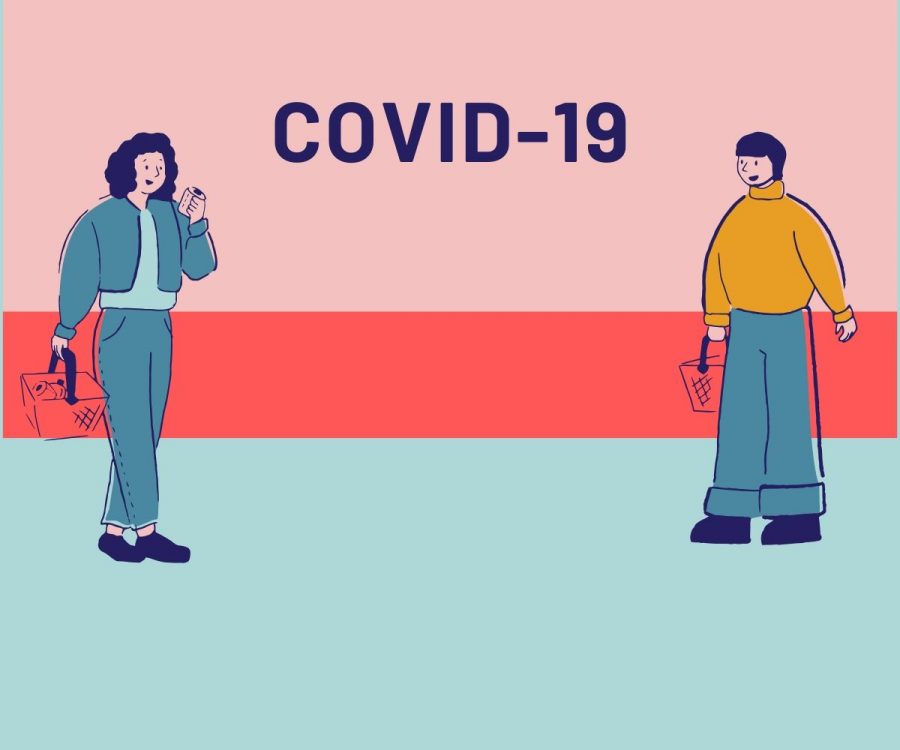
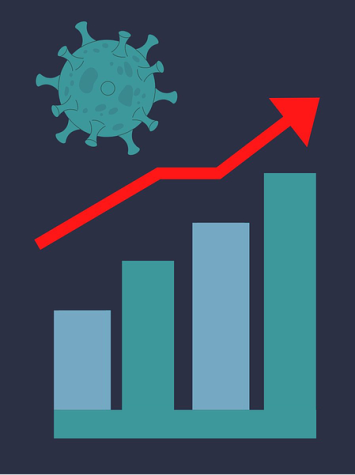
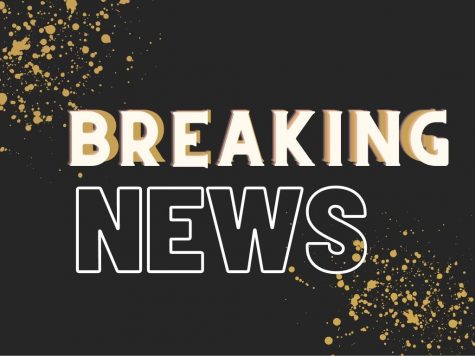
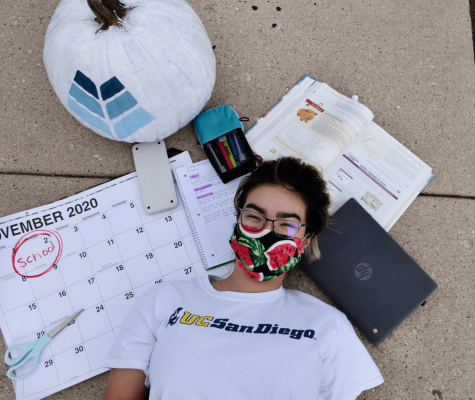
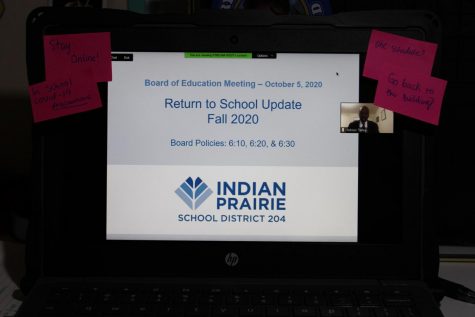

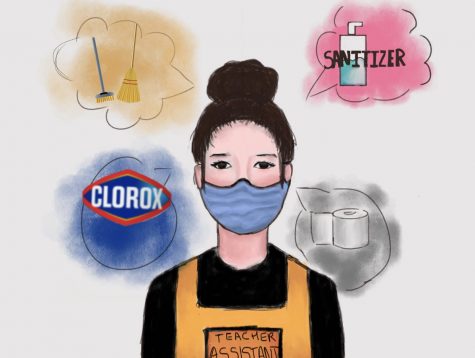
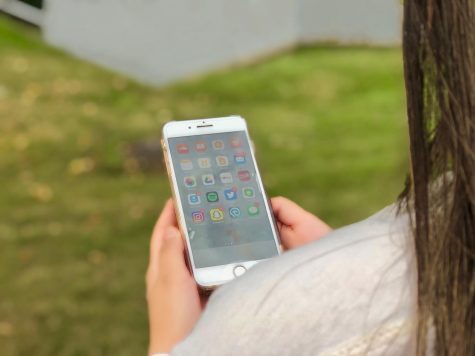
the american caesar • Apr 14, 2020 at 9:40 am
I know what he have here is somewhat flawed, but it is generally better than other systems. if you want a planned economy where human freedom is thrown out the window for artificial progress and COVID – 19 happens in a planned economy, it will collapse. because everything has to go to plan and if COVID comes around, they did not predict it so all of the plans are now meaningless and when its over, the people would be worked to death because they needed the quotas reached because of their economy depends on it.
and when you said fearmongering, what does that mean? does it mean that we can’t condemn a dictatorship that still has very little concept of human freedom and wishes to expand its influence?
and I know “orange man bad” but what about in South Korea where they will track you on your phone to make sure you are indoors, china killing doctors, Bolivian elections not delayed, but suspended, and Hungary just becoming a dictatorship. governments will use this to increase their power, like in Germany after the Reichstag fire when Hitler used this as an excuse to seize power.